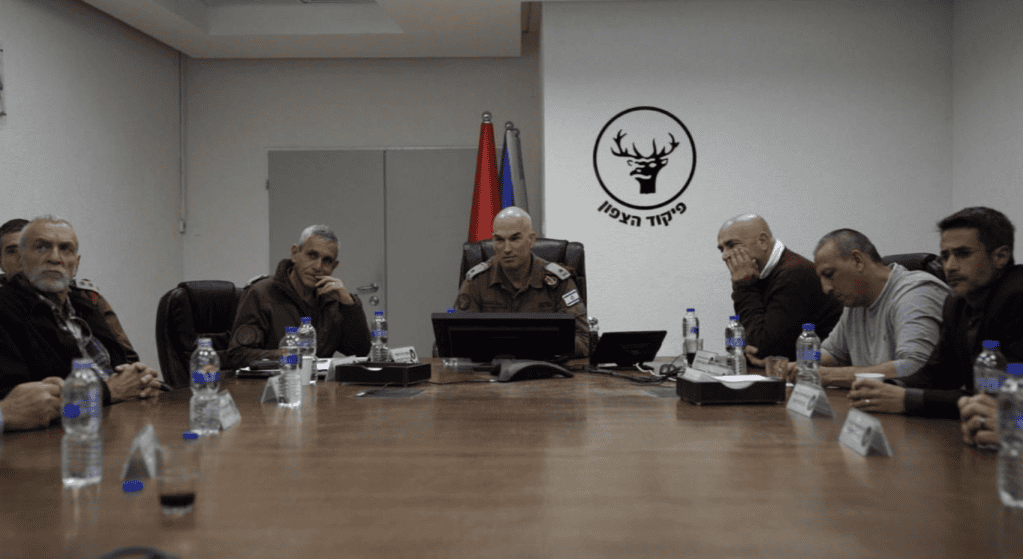
Hezbollah targeted Israel with two barrages of rockets on Feb. 9. The rocket fire by the Iranian-backed terrorist group in Lebanon has taken place every day during the week of Feb. 5-9. Israeli soldiers were also wounded on Feb. 6 and 8. On Feb. 6, two soldiers sustained minor injuries, while an IDF officer was critically wounded. On Feb. 8, two soldiers suffered minor injuries.
One of the Hezbollah rocket barrages targeted areas in northern Israel called the Galilee panhandle, which stretches north along the headwaters of the Jordan River. Video captured numerous interceptions at dusk over Israel. The IDF also said that Israel’s air defenses intercepted a “suspicious aerial target above the Haifa maritime space.” It was not clear if this was a threat from Hezbollah or a civilian object that had floated into the sensitive area. Haifa’s maritime area includes numerous cargo ships, the port area, and a navy base.
The Israeli air force is increasingly focused on the Hezbollah threat. Israeli Defense Minister Yoav Gallant referred to the air force “pointing” north on Feb. 4. In addition, Israel air force commander Maj. Gen. Tomer Bar spoke at a conference at the Israeli Palmachim airbase south of Tel Aviv. “Hezbollah will continue to pay with the loss of its systems. Dozens of aircraft are now operating in the skies of southern Lebanon, and the moment an order is given – the dozens will turn into hundreds carrying out the missions within minutes from launch,” the IDF said, paraphrasing his comments. The conference was attended by Chief of the General Staff, Lt. Gen. Herzi Halevi, and the Commanding Officer of the Southern Command, Maj. Gen. Yaron Finkelman. The conference is important, and the IDF says it was “attended by all commanders in the IAF from the rank of Lt. Col. and up, including the commanders of squadrons and operational units,” and has focused on plans for 2024.
As part of Israel’s focus on the north, Maj. Gen. Ori Gordin, the head of Israel’s northern command, met with the head of Israeli communities in the north on Feb. 9. Israel has evacuated 80,000 civilians from the north due to Hezbollah attacks that began after the Hamas attack on Israel on Oct. 7. “Our goal is to change the security situation in the north in a manner that will allow us to safely return the residents home to a state of security,” Gordin said. He said that Israel continues to prepare for an expansion of the conflict in the north and the possibility to “go on the offensive.”
The comments by Gordin came as the IDF responded to the attacks on Feb. 9. “IDF fighter jets struck a military site in which Hezbollah terrorists were operating in Maroun El Ras as well as three military compounds in the towns of Yohmor and Naqoura in southern Lebanon. The IDF also struck a number of locations in southern Lebanon with artillery and mortar shells,” the IDF said. In addition, overnight, the Israeli air force struck a Hezbollah site near Meiss El Jabal.
Israel is focusing heavily on security in the north. This week, FDD’s Long War Journal traveled to northern Israel to see some of the work the IDF has been doing to improve the situation. However, the continued Hezbollah attacks illustrate that despite efforts to conduct precision strikes on Hezbollah sites and reinforce communities along the border, the attacks continued.







